1. They Ignored Strict Voting Rules
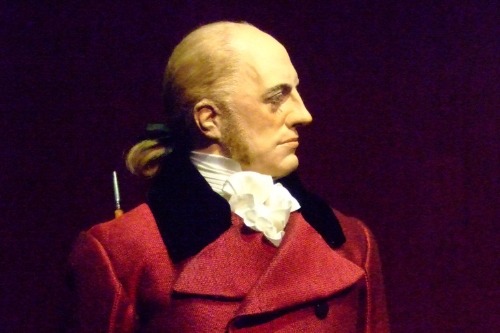
In the early days of the United States, voting wasn’t as simple as showing up at a polling place with an ID. Each state had different, often strict, rules about who could vote, usually limiting it to landowning white men. However, many Founding Fathers looked the other way when it came to enforcing these rules, especially if it meant securing votes for their own political allies. In some cases, men who didn’t technically qualify to vote were encouraged to cast ballots anyway, and election fraud was shockingly common.
Elections were often rowdy, and people voted in ways that wouldn’t be acceptable today, such as by raising their hands or shouting their choices in public. Some Founders, including Thomas Jefferson and Alexander Hamilton, were known to play fast and loose with election rules to gain power, according to John Ferling from Smithsonian Magazine. In smaller towns, local officials sometimes let unqualified people vote just to boost turnout. The idea of a truly fair and regulated election process didn’t really take hold until much later.
2. They Engaged in Political Backstabbing
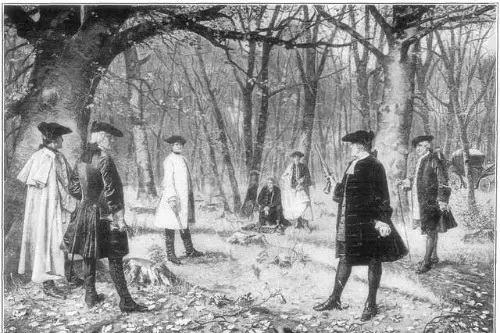
While the Founding Fathers are often portrayed as noble statesmen, they were ruthless when it came to politics. Jefferson and Adams, once friends, became bitter enemies, spreading vicious rumors about each other during their presidential campaigns. Hamilton and Burr’s feud became so personal that it ended in a deadly duel, Jeff Wallenfeldt explains in Britannica. Even George Washington was attacked by his rivals, who accused him of being a wannabe king.
Political newspapers of the time were filled with personal attacks, often exaggerated or outright false. Jefferson secretly funded newspapers that smeared Adams, calling him a power-hungry monarchist. Hamilton, never one to back down from a fight, wrote scathing essays attacking his opponents. Today’s political mudslinging has nothing on what the Founding Fathers did to each other.
3. They Spoke Against Slavery While Owning Slaves

Many Founding Fathers publicly spoke about the evils of slavery while continuing to profit from it. Thomas Jefferson wrote that slavery was a “moral depravity” and a threat to the nation’s future, yet he enslaved over 600 people in his lifetime, Henry Wiencek from Smithsonian Magazine explains. Even George Washington, who freed his slaves in his will, actively pursued runaway enslaved people while he was alive. They justified this contradiction by saying they were “trapped” in the system or that ending slavery would destroy the economy.
Some, like Benjamin Franklin and John Adams, did take a firm stance against slavery and refused to own slaves. However, most of the wealthiest and most powerful Founders continued to benefit from the system even as they publicly criticized it. Jefferson’s famous words in the Declaration of Independence—”all men are created equal”—didn’t apply to the enslaved people working his plantations. Their actions didn’t always match their ideals, making their legacy a complicated one.
4. They Dabbled in Smuggling
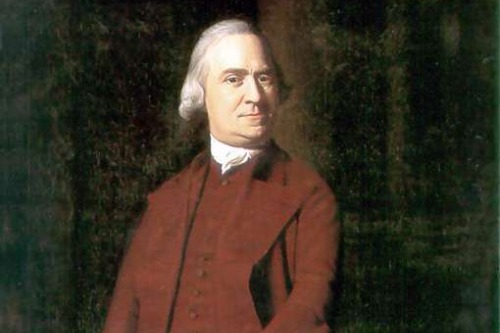
Before the Revolution, the British government had strict trade laws that limited what the American colonies could import and export. Instead of following these rules, many Founding Fathers—including John Hancock—engaged in smuggling to avoid British taxes, according to the American Battlefield Trust. Hancock, in particular, became one of the richest men in New England by illegally importing goods like molasses, tea, and wine. The British even seized one of his ships, the Liberty, accusing him of smuggling, which only made him more of a hero among revolutionaries.
Others, like Samuel Adams, helped organize underground networks to distribute smuggled goods. Even George Washington was known to skirt trade laws when it suited him, often purchasing luxury items from European merchants outside of legal channels. The irony is that while they accused Britain of unfair taxation, they also refused to follow the existing trade rules. Smuggling was practically an act of patriotism for them, but it was still breaking the law.
5. They Disregarded Treaties With Native Americans

The Founding Fathers often spoke about respecting Native American land rights, but in practice, they did the opposite, according to Gillian Brockell from The Washington Post. George Washington and Thomas Jefferson both signed treaties promising land to Native tribes, only to support policies that took that land away. Even as they negotiated peace agreements, settlers were encouraged to move into Native lands, violating those very treaties. Washington, who called Native Americans “savages” in private letters, personally invested in land speculation in areas that were supposed to be off-limits.
Jefferson, for all his talk of diplomacy, pushed policies that forced Native tribes westward. The Founders knew that keeping their promises to Native nations would slow expansion, so they often ignored the treaties they signed. Land hunger always won out over legal agreements, and Native Americans were repeatedly betrayed. These broken promises set the stage for centuries of conflict and displacement.
6. They Drank—A Lot

The Founding Fathers weren’t just casual drinkers; they consumed alcohol in staggering amounts. In fact, drinking was such a normal part of life that even government meetings and political gatherings often featured booze. Washington’s campaign for the Virginia House of Burgesses famously included giving out massive amounts of rum and whiskey to voters. By modern standards, they would have been considered heavy drinkers, if not borderline alcoholics.
Beer, cider, rum, and whiskey were staples of everyday life, partly because clean water wasn’t always available. Jefferson had a particular love for fine wines, while Franklin was a fan of ale and even wrote an essay praising the benefits of drinking. John Adams started each morning with a tankard of hard cider. If prohibition-era Americans could have seen the Founding Fathers in action, they’d probably have been horrified.
7. They Started Wars Without Official Approval

Even though the Constitution requires Congress to declare war, some Founding Fathers didn’t always wait for that formality. George Washington launched military campaigns against Native American tribes without full congressional approval. Later, Thomas Jefferson sent U.S. forces to fight the Barbary pirates without an official declaration of war. They justified these actions as necessary for national security, but they technically overstepped their authority.
This set a precedent for later presidents to use military force without waiting for a formal declaration of war. While they had good reasons—protecting American trade, expanding territory, or responding to threats—they didn’t always follow the rules they had written. Even at the very beginning of the country, presidents found ways to exercise military power without full congressional oversight. This habit of bending the rules on war continues to this day.
8. They Didn’t Pay Their Taxes
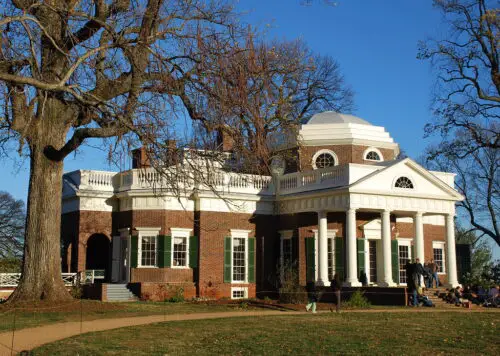
It’s ironic that the men who started a revolution over taxes were often terrible at paying their own. Some Founding Fathers, including George Washington and Thomas Jefferson, found creative ways to avoid paying taxes on land and personal property. At the time, states and local governments taxed land, luxury goods, and even slaves, but many elites found loopholes to keep their money. Washington, for example, used legal tricks to get out of paying taxes on his distillery.
Jefferson, despite being one of the biggest landowners in Virginia, was often deep in debt and struggled to pay taxes at all. Others, like Benjamin Franklin, played a role in creating tax laws but personally benefited from breaks and exemptions. While they demanded financial accountability from the government, they often failed to apply those same standards to themselves. If they were around today, they’d probably be getting audited.
9. They Ignored Their Own Laws
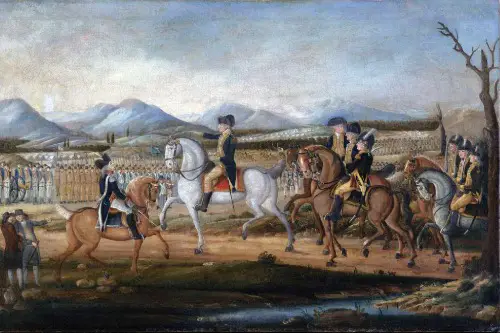
The Constitution was supposed to set clear rules for how the government operated, but the Founders didn’t always follow them. For example, Washington exceeded his constitutional authority multiple times, particularly when he crushed the Whiskey Rebellion. Adams signed the highly controversial Alien and Sedition Acts, which directly violated the First Amendment’s protections on free speech. Jefferson, despite his belief in limited government, made the Louisiana Purchase without clear constitutional approval.
These actions showed that even the Founders weren’t entirely sure how to interpret the Constitution they had written. Some of their biggest decisions pushed legal boundaries in ways that would be debated for years. They justified their choices by claiming necessity, but their actions often went against the very principles they claimed to uphold. In many ways, they were making up the rules as they went along.
10. They Dismissed Women’s Political Opinions
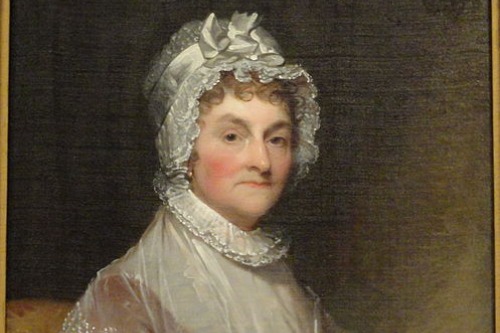
The Founding Fathers spoke endlessly about liberty and equality, but they largely ignored the rights of women. Women had no official political power, but that didn’t stop them from trying to influence decisions behind the scenes. Abigail Adams famously wrote to her husband, John Adams, urging him to “remember the ladies” when drafting new laws, but he laughed it off. Women were expected to focus on their households, even though many played crucial roles in the revolution and early government affairs.
Despite their dismissal, women like Mercy Otis Warren wrote political essays that shaped public opinion, and Dolley Madison wielded influence in Washington’s social circles. The Founders benefited from the labor, intelligence, and support of women while excluding them from political life. Even Jefferson, who wrote about universal rights, believed women should remain in the private sphere. It took more than a century after the Founding Fathers for women to gain the right to vote, a right the Founders never seriously considered granting.
11. They Used Government Positions for Personal Gain

Many of the Founding Fathers took advantage of their political influence to enrich themselves. Land speculation was a favorite pastime, and figures like George Washington and Benjamin Franklin used insider knowledge to buy up valuable land before it became public. Washington, for instance, secured vast amounts of land in what would become Ohio and Kentucky by using his connections in government. These land deals often involved bending or outright ignoring existing laws.
Thomas Jefferson, meanwhile, pushed for policies that benefited large plantation owners like himself, despite presenting himself as a champion of the common man. Even Alexander Hamilton, often seen as an economic genius, faced accusations of corruption for his handling of government funds. While they weren’t engaging in outright embezzlement, they certainly made sure their policies worked in their favor. Today, their actions would likely result in intense ethical scrutiny—if not legal trouble.
12. They Violated Their Own Religious Freedom Principles

The Founding Fathers preached religious freedom, but many of them weren’t as tolerant as they claimed. Some states had official religions well into the early 1800s, and dissenters often faced discrimination. Even though Jefferson famously called for a “wall of separation between church and state,” he also refused to recognize certain religious groups as legitimate. Early laws often favored Protestant denominations while making it harder for Catholics and Jews to participate in politics.
John Adams signed the Treaty of Tripoli, which stated that “the Government of the United States is not, in any sense, founded on the Christian religion.” But at the same time, religious minorities struggled to gain equal rights. Several Founders also promoted Christianity as essential to national morality, contradicting their claims of neutrality. Their vision of religious freedom often depended on whose religion was in question.
13. They Spread Fake News
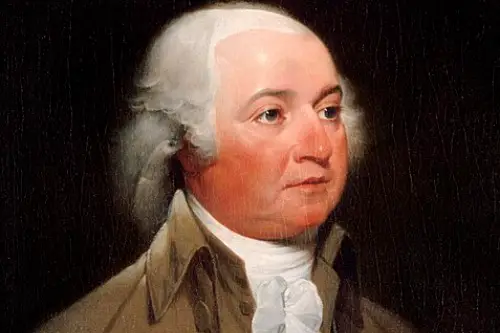
Misinformation wasn’t invented in the 21st century—the Founding Fathers were masters of political propaganda. Newspapers of the era were filled with exaggerated claims, false accusations, and outright lies designed to sway public opinion. Jefferson secretly funded attacks on Adams, accusing him of wanting to marry off his son to a British princess and establish a monarchy. Adams’ supporters fired back with claims that Jefferson was an atheist who would bring chaos and destruction.
Even Benjamin Franklin once published a fake story about British soldiers scalping colonists, complete with a forged letter to make it seem real. These tactics weren’t just limited to campaigns—they used propaganda to stir up revolutionary sentiment against Britain as well. The idea that political debates were once civil and respectful is a myth. The Founders played dirty, and they were proud of it.
14. They Ignored the Bill of Rights When It Suited Them

The Bill of Rights was supposed to guarantee fundamental freedoms, but even the Founding Fathers didn’t always respect it. Just a few years after the First Amendment was passed, John Adams signed the Alien and Sedition Acts, which made it illegal to criticize the government. Newspaper editors were jailed for printing negative stories about Adams’ administration, directly violating the promise of free speech. Jefferson strongly opposed the law, but once he became president, he used similar tactics to silence his enemies.
The Fourth Amendment, which protects against unreasonable searches, was also ignored when it came to suppressing dissent. Washington used federal troops to crack down on tax protesters during the Whiskey Rebellion, searching homes and arresting people without due process. The early government talked a big game about protecting rights, but when faced with political opposition, many Founders prioritized control over principle. If they were alive today, they’d probably have some very awkward conversations about their own hypocrisy.
15. They Bent the Rules to Stay in Power
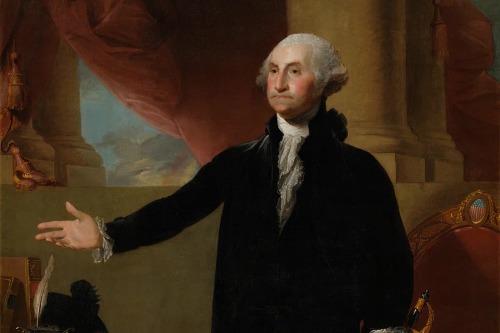
For all their talk of democracy, some Founding Fathers weren’t above manipulating the system to maintain control. George Washington set the precedent of serving only two terms, but some of his peers weren’t so restrained. John Adams tried to pack the courts with Federalist judges before leaving office, ensuring his party would hold power even after he lost the presidency. Jefferson, for all his democratic ideals, made the Louisiana Purchase without congressional approval, expanding executive power in a way that alarmed his opponents.
Even elections themselves were messy—backroom deals and political maneuvering often determined who won. The election of 1800 was so chaotic that it ended in a tie between Jefferson and Aaron Burr, which was only resolved after secret negotiations and political favors. Many of the Founders feared true democracy and worked to limit who could vote or hold office. They might have started a revolution against tyranny, but they weren’t always willing to let go of power themselves.


